US judge orders Facebook to release anti-Rohingya account records for genocide case
A judge in the United States has denounced Facebook for failing to release records of now-closed accounts that contributed to violence against Rohingya Muslims in Myanmar, according to a new report.
The judge in Washington, DC, on Wednesday, ordered Facebook to release the information in this regard to investigators seeking to prosecute the regime in Myanmar for committing international crimes against the Muslim minority, The Wall Street Journal reported.
The US social media platform had refused to release the data, arguing it would violate an American law that bars electronic media networks from disclosing users’ communications.
But the judge argued that releasing the information of the accounts behind the incendiary posts, which were deleted, would not violate the law, according to the newspaper.
The judge said not sharing the content would "compound the tragedy that has befallen the Rohingya".
"Facebook taking up the mantle of privacy rights is rich with irony. News sites have entire sections dedicated to Facebook's sordid history of privacy scandals," he wrote.
Shannon Raj Singh, human rights counsel at Twitter, hailed the decision as “momentous”.
“Momentous decision on Facebook’s obligation to disclose information relevant to the #Myanmar genocide case brought by #TheGambia at the #ICJ,” she said in a post on Twitter.
She added it was “one of the foremost examples of the relevance of social media to modern atrocity prevention & response”.
The human rights activist and lawyer quoted the court decision in her post: “Facebook can act now. It took the first step by deleting the content that fueled a genocide. Yet it has stumbled at the next step, sharing that content. Failing to do so here would compound the tragedy that has befallen the Rohingya.”
“A surgeon that excises a tumor does not merely throw it in the trash. She seeks a pathology report to identify the disease. Locking away the requested content would be throwing away the opportunity to understand how disinformation begat genocide of the Rohingya and would foreclose a reckoning at the ICJ,” the judge wrote in the decision.
The Rohingya Muslims based in Myanmar’s Rakhine State have been subjected to a campaign of killings, rape, and arson attacks by the military-backed by the country’s majority Buddhist extremists in what the UN has described as “a textbook example of ethnic cleansing.”
The brutal campaign has forced more than 730,000 Rohingya Muslims to flee their homeland since August 2017 and seek refuge in Bangladesh.
The 2017 clampdown is the subject of a genocide investigation by the International Criminal Court (ICC).
The Rohingya, who have lived in Myanmar for generations, are denied citizenship and are branded illegal immigrants from Bangladesh, which likewise denies them citizenship.
On the fourth anniversary of the crackdown, several groups in Myanmar last month issued statements calling for accelerated efforts to prosecute those responsible for the 2017 military action.
"Four years on justice for the Rohingya remains shamefully elusive. Not a single individual who committed the heinous crimes against the Rohingya has been held to account," said Progressive Voice, an advocacy group.
Facebook has come under fire in Myanmar for over a decade for the volume of hate speech directed against the Rohingya Muslims who have been subjected to waves of brutal violence during this time.
United Nations investigators say Facebook played a key role in spreading hate speech that fueled the violence against the community in 2017.
The UN Human Rights Council in July adopted a resolution denouncing violations by Myanmar’s military against the Rohingya Muslims and other ethnic minorities.
The resolution, brought forward by Pakistan on behalf of the Organization of Islamic Cooperation (OIC), was approved at the Geneva-based 47-member council on Monday.
Khalil Hashmi, Pakistan's ambassador to the UN in Geneva, voiced concern over the rights violations against the Rohingya in Rakhine state.
"Unfortunately, the humanitarian and human rights situation of Rohingya Muslims remains dire, and therefore requires a collective call by the council asking Myanmar to immediately halt human rights violations, and to uphold their fundamental rights," he said.
The text of the resolution expresses "grave concern" at reports of serious abuses, including arbitrary arrests, deaths in detention, torture, forced labor and "the deliberate killing and maiming of children."
The resolution also demands an immediate cessation of fighting and hostilities, of the targeting of civilians, and supports "the people of Myanmar and their democratic aspirations" and "the democratic transition in Myanmar."
Why Iran’s Leader refused special protection, leading from the front until last breath
Hezbollah strikes Israeli surveillance, military base in Golan Heights, occupied lands
Iran holds funeral for tens of schoolgirls murdered in US-Israeli aggression
Iran destroys main command building, headquarters of US air base in Bahrain
US embassy in Saudi capital set ablaze after drone attack: Riyadh
Saudi Arabia, Qatar foiled Mossad bombing plots on their soil: Tucker Carlson
Iran's firm response will last as long as attacks do: Envoy
Shedding of American, Iranian blood on ‘Israel firsters’: Iran FM


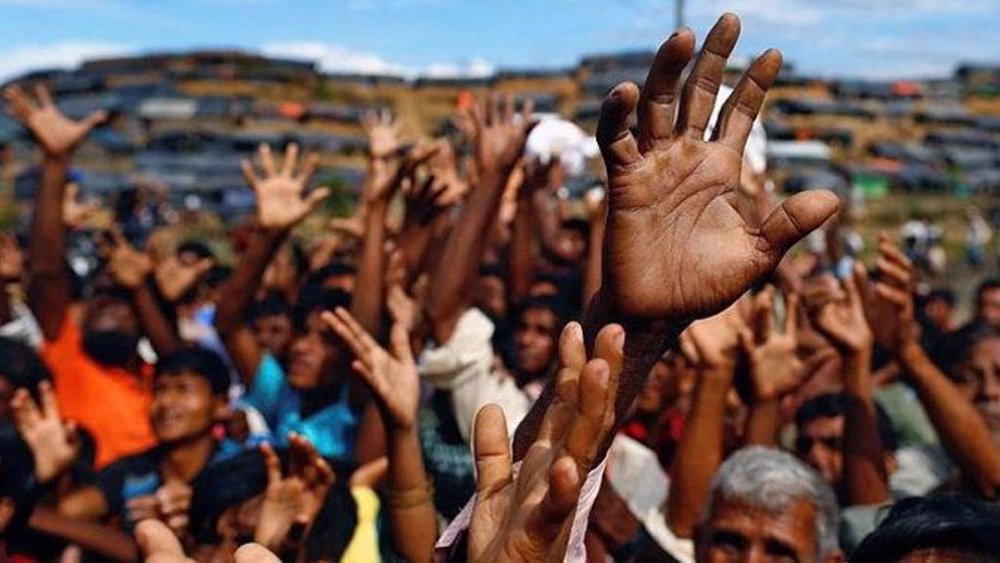
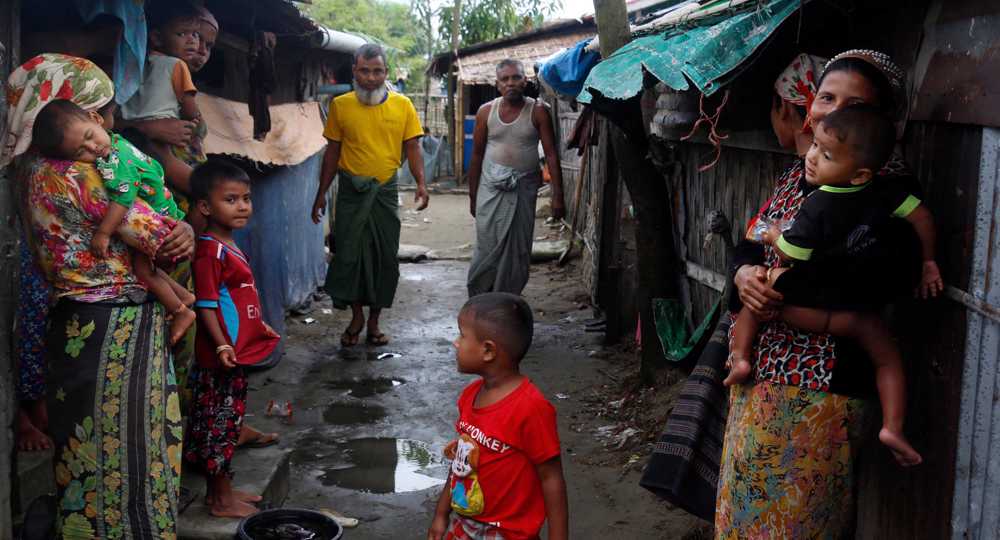
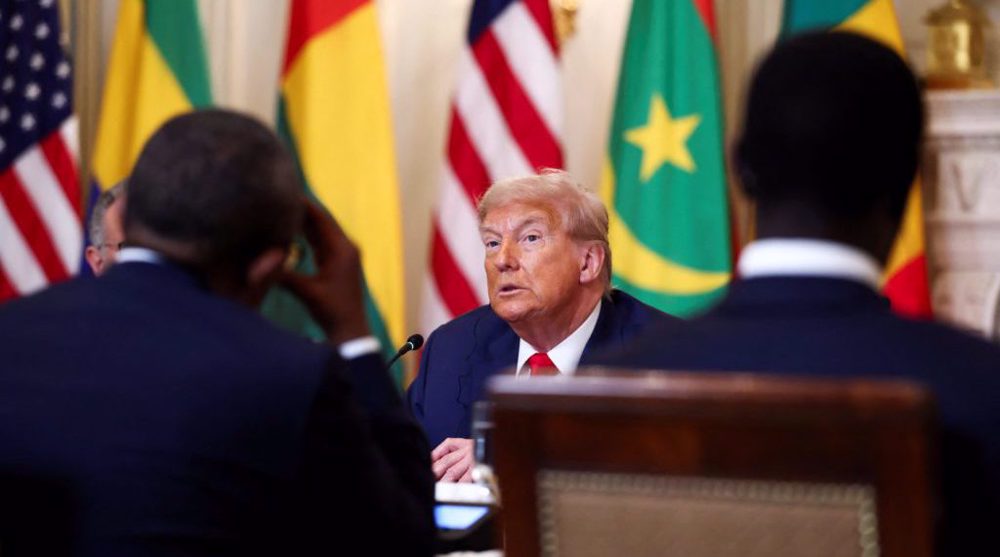
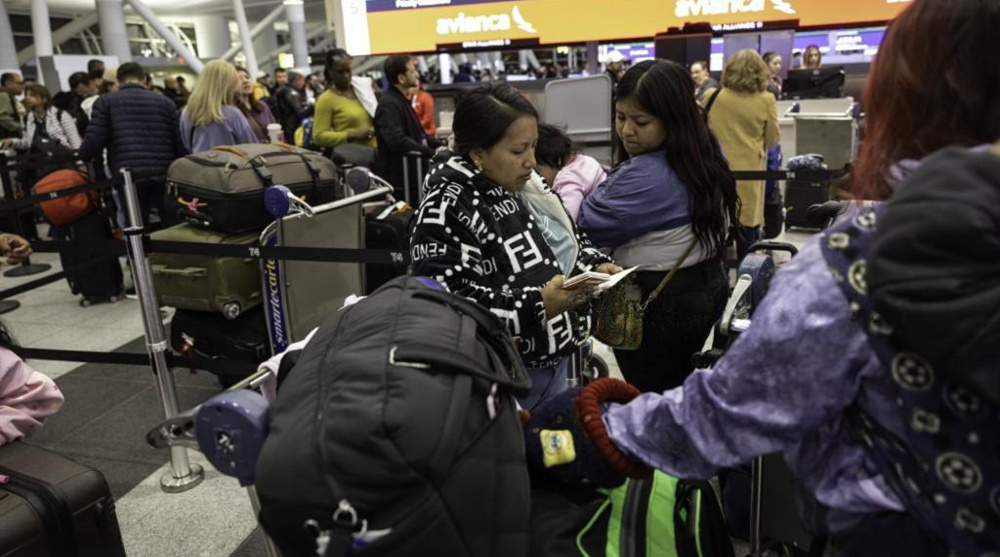
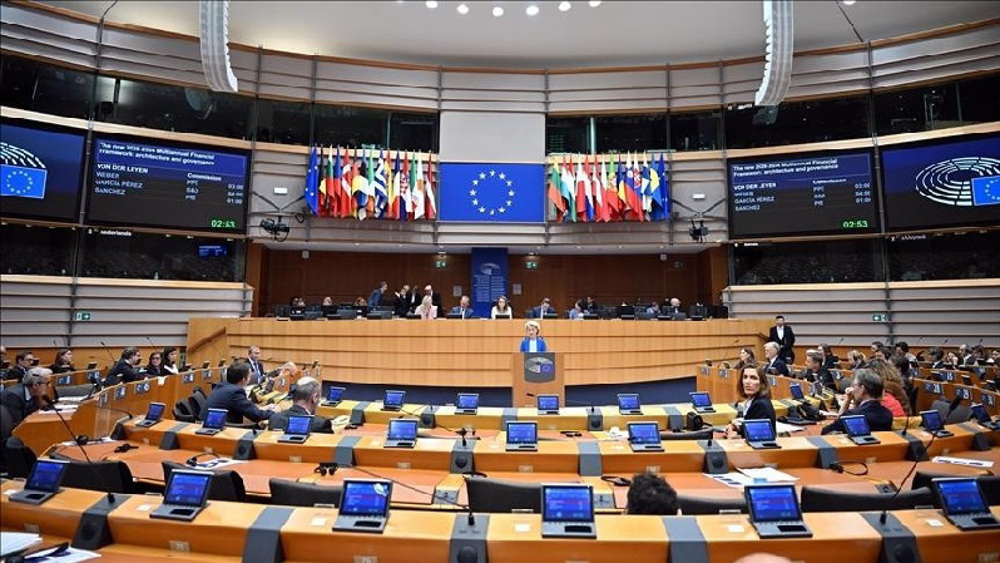




 This makes it easy to access the Press TV website
This makes it easy to access the Press TV website